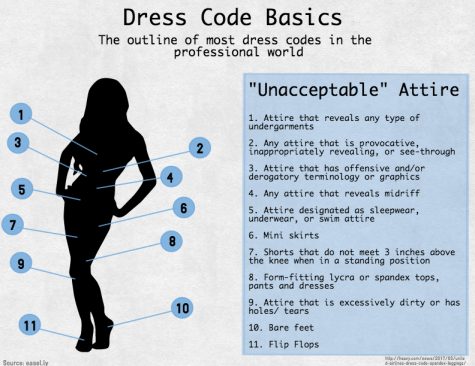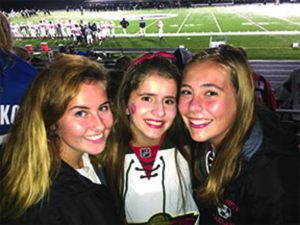Dress codes are acceptable if equally enforced

Recently, dress codes and their enforcement have been a controversial topic throughout the public. An instance that has recently raised debate was United Airlines dress coding two girls and making them change before boarding the plane.
This incident was first made public by a woman named Shannon Watts known for momsdemandaction.org. She ranted on twitter about a United gate agent making two girls change because they violated the dress code. She did not know that the girls were flying through United Pass Program, which means they were flying for free and representing United Airlines.
It is reasonable for United to want their representatives to be dressed presentably and appropriately. The girls also signed a contract with the dress code clearly stated, so it was not United’s fault. Although, in general, dress codes are not necessary in the business world.
One thing that was not as talked about in the United incident is the fact that there was also a man flying for free whose shorts violated the dress code. However, he was not asked to change.
“I believe, because of the situation, that the women were flying for free and had signed a contract saying they would follow a dress code, that it was definitely okay for the airline to demand them to change into something different. What I don’t think is okay is that the man they were traveling with did not have to change although he was not following the dress code either, this is unjust and unnecessary,” junior Isabel Solheim explained.
In the professional world, dress codes that set a general outline for what people should wear can be beneficial for everyone involved. However, dress codes that restrict people from wearing pants that are not below their fingertips or shirts that show a little shoulder, are not necessary.
“I do not believe that dress codes should exist in the professional society of America today. However, I do believe that there should be guidelines. If you work in a cubicle all day, there should be no reason why you can’t wear something comfortable, and show up to work in not necessarily pajamas but sweatpants. No job, unless under specific circumstances, should require you to wear your finest clothes every day,” junior Lars Johnson said.
The bigger issue that arose with the United incident is the over-sexualization of women in the business world and in general. This has been an issue for quite some time, however, United’s actions brought it to everyone’s attention.
“Dress codes are most definitely aimed at women, and are more strictly enforced with women. In school for example, the boys cross country team shows up half naked, in cow boy boots, short shorts and crop tops and no one batts an eye. But when a girl’s shoulders are visible, the administration has a heart attack. United Airlines is another great example of how dress codes are enforced for women and not for men. Dress codes in general are understandable, but are only acceptable when they are equally enforced for men and women,” Solheim explained.
McKenzie is a junior and a photographer for the Pony Express. She moved to Stillwater from Illinois the summer before she was in 9th grade. She enjoys...









